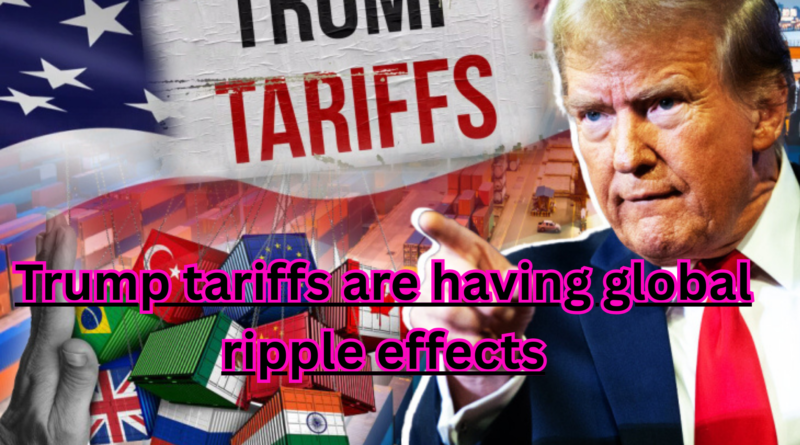Trump tariffs are having global ripple effects
President Donald Trump’s announcement of sweeping new tariffs has once again sent shockwaves through the global economy. A 30% tariff on imports from the European Union and Mexico is set to begin on August 1, marking a significant escalation in trade tensions. The White House claims this move is aimed at correcting trade imbalances and encouraging domestic production, but many analysts see it as a political maneuver with high economic risk.
The global markets responded almost immediately to the news. U.S. futures plunged as investors anticipated retaliatory measures and potential supply chain disruptions. European and Asian markets also saw significant losses, with manufacturing-heavy indices particularly affected. The volatility highlights investor fears that the tariffs could trigger a global slowdown, especially in key export-driven economies.
In a surprising twist, the U.S. dollar strengthened following the tariff announcement. Analysts attribute this to investors seeking safe-haven assets amid growing uncertainty. A stronger dollar, however, could complicate trade further by making American exports more expensive and less competitive in global markets, thus undercutting one of the tariff policy’s stated goals.
Another striking consequence of the announcement was the dramatic surge in Bitcoin’s value. The cryptocurrency reached a new record high, trading around $121,200, as investors rushed to hedge against currency devaluation and market instability. Bitcoin’s rally is seen by some as a reflection of eroding confidence in traditional financial systems amid rising geopolitical and economic risk.
Reactions from international leaders have been swift and critical. The European Union called the tariffs “unjustified and provocative,” vowing to respond with countermeasures if the U.S. does not reverse course. Mexico, one of the countries hit hardest by the new policy, has already begun preparing its own retaliatory tariffs targeting key U.S. exports such as agricultural products and automotive parts.
As the August 1 deadline approaches, economic experts warn that the longer-term consequences of these tariffs could be severe. Beyond short-term market turbulence, they may result in job losses, inflation, and declining consumer confidence. With the global economy already facing headwinds from ongoing conflicts and climate disruptions, Trump’s aggressive trade stance may further destabilize an already fragile system.




